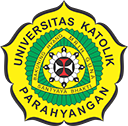The Materials Physics concentration focuses its research on gaining a deeper understanding of several physical properties of materials, such as mechanical, thermal, electrical-magnetic, and optical properties. This understanding further enhances the ability to develop various aspects of Materials Physics, particularly its applications, which can have a positive impact on society and the natural environment. Specifically, the types of materials studied include polymers, liquid crystals, and nanomaterial technologies. Ongoing research topics include:
- The relationship between color changes in liquid crystals and temperature variations in Thermochromic Liquid Crystal (TLC) materials, as well as image-processing techniques for TLC surfaces.
- How magnetic resonance can be used to study the structure of materials.
- How materials can be characterized simply, both theoretically and experimentally.
- Understanding the flow properties of “soft” materials, which are typically composed of non-spherical molecules.
- Characterization of graphene and its applications.

Meanwhile, the Instrumentation Physics concentration at UNPAR studies measurement processes using sensors, processing them electronically or via computer with filters and other techniques. The measurement results can then be directly utilized for various purposes, stored, or used as feedback to form a closed-loop (automatic) control system.
Unlike engineering programs, graduates of the Instrumentation Physics concentration emphasize problem-solving and fundamental concepts, making them highly adaptable to various fields of work, such as:
- Researchers at various research institutions such as LIPI, BATAN, etc.
- Various industries, especially those involving equipment, control systems, robotics, data acquisition, equipment design, and more.
- Control system designers, automation system developers, and equipment designers, particularly in electronics or computer-based technologies.
- The field of medical instrumentation, which involves signal and image processing systems and the equipment used in hospitals.

For Physics Education, the focus is on active-learning-based physics teaching for secondary schools. Students also have opportunities to gain hands-on teaching experience in partner schools through the Unpar Science Workshop program. In addition, students can undertake teaching internships in collaboration with partner schools.
Spectroscopy and the integration of philosophy, cosmology, and faith with science are also areas of interest in this concentration.
If you are interested and wish to learn more about Applied Physics and other fields of Physics, please contact the relevant lecturers directly.

